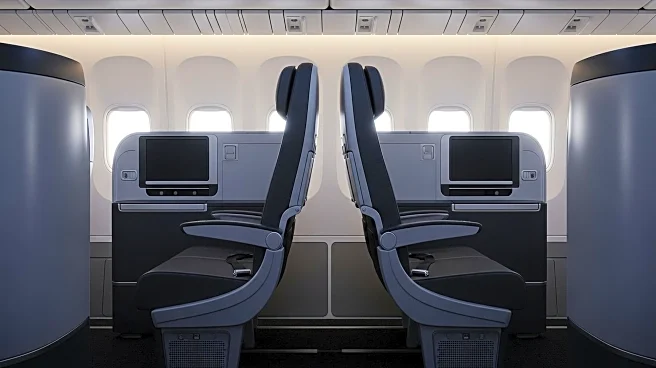What's Happening?
Travel advisers are discussing the strategy known as 'check-in chicken,' where travelers wait until the last minute to check in for flights in hopes of securing better seat assignments. Nadia Henry, a travel adviser, has found success with this approach, particularly when flying with ultra-low-cost carriers. However, experts like Katy Nastro, a spokesperson for Going, caution that this method is not foolproof. Airlines often assign seats from back to front once check-in opens, and passengers without seat assignments may end up in less desirable seats unless they pay for a preferred seat. Travelers with airline status are more likely to receive better seats, and early check-in can improve upgrade chances.
Why It's Important?
The 'check-in chicken' strategy highlights the challenges travelers face in securing desirable airline seats without incurring additional costs. As airlines increasingly rely on ancillary revenue from seat assignments, passengers are left to navigate a system that prioritizes those willing to pay. This approach underscores the broader trend of airlines monetizing seat preferences, impacting travelers' experiences and potentially influencing their loyalty to certain carriers. The strategy also reflects the ongoing evolution of airline pricing models, where transparency and predictability are often lacking.
What's Next?
Travelers may continue experimenting with the 'check-in chicken' strategy, but the most reliable method remains paying for seat assignments in advance. Airlines are likely to maintain their current practices, focusing on maximizing revenue from seat preferences. As travelers seek ways to optimize their flying experiences, they may increasingly rely on travel advisers and experts for guidance. Airlines might also explore new ways to enhance customer satisfaction while balancing revenue goals, potentially leading to adjustments in seat assignment policies.
Beyond the Headlines
The 'check-in chicken' strategy raises questions about fairness and accessibility in air travel. As airlines capitalize on seat assignment fees, travelers with limited budgets may face disadvantages, potentially exacerbating inequalities in travel experiences. This trend could prompt discussions about the ethical implications of monetizing seat preferences and the need for more transparent and equitable practices in the airline industry.











